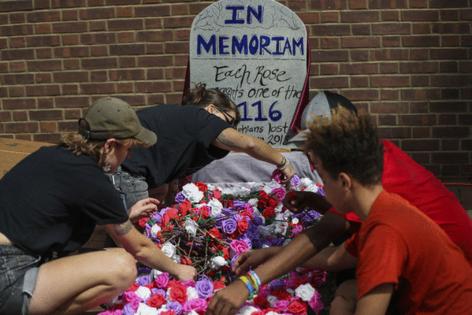Safehouse nonprofit can argue that its founders' religious beliefs give them a right to open a supervised injection site, appeals court rules
Published in Women
PHILADELPHIA — A federal appeals court ruled Thursday that Safehouse, the nonprofit aiming to open a supervised drug consumption site in Philadelphia, is legally entitled to argue that it has a religious right to prevent overdoses by operating a facility where people can use drugs under medical supervision.
The decision overturns a previous ruling by U.S. District Judge Gerald A. McHugh, who dismissed Safehouse’s case in 2024, saying that the group was not a religious entity and that its founders’ religious beliefs did not give them license to violate federal law.
The nonprofit will return to U.S. District Court to continue its long-running legal battle, which has now spanned three presidential administrations and two Philadelphia mayoral terms.
Most recently, Safehouse founders argued in court filings in 2023 that their Jewish and Christian faiths compel them to save lives amid an overdose crisis that has killed thousands of Philadelphians in the last decade.
The organization’s board includes several area faith leaders. Its backers have argued that they are not encouraging drug use but engaging in harm reduction by providing lifesaving medical care for people with addiction.
McHugh found that the nonprofit’s founding documents and tax filings do not mention a religious mission for the organization, saying that Safehouse’s work was “in no respect religious.”
Safehouse appealed the decision. On Thursday, a panel of three judges on the U.S. Court of Appeals for the Third Circuit ruled in its favor, saying that the Religious Freedom Restoration Act, or RFRA, applies even to “nonreligious entities” like Safehouse.
The panel cited a landmark 2014 Supreme Court decision which ruled that the crafts giant Hobby Lobby was not required to offer its employees contraception because of its owners’ religious beliefs.
“RFRA applies to ‘a person’s’ exercise of religion’ and Safehouse is a ‘person’ claiming to exercise religion, so it is eligible for RFRA’s protections,” the panel wrote in a 12-page ruling.
The panel declined to rule on whether a threat of prosecution from the federal government would restrict Safehouse’s founders from expressing their religion.
“Our position in many ways is the same as it’s ever been. We’re looking for federal authority to initiate this lifesaving service,” said Ronda Goldfein, Safehouse’s vice president. “We’re grateful the Third Circuit recognizes that the federal law protects us and we can assert our rights.”
The Department of Justice did not immediately return a request for comment.
A long-running court battle
Safehouse’s legal battle began in 2019, when then-U.S. Attorney William M. McSwain, an appointee of President Donald Trump, sued the nonprofit shortly after it incorporated.
Government lawyers argued that Safehouse’s proposed supervised consumption sites would violate a federal law, colloquially known as the “crackhouse statute,” that bans the operation of any space for people to use drugs.
McHugh initially sided with Safehouse, ruling in 2019 that the organization’s goal was “to reduce drug use, not facilitate it.”
The nonprofit had hoped to open a site in South Philadelphia in 2020, but the plan was scrapped amid intense public backlash.
In 2021, McHugh’s decision was overturned by the Third Circuit, which ruled that “Congress has made it a crime to open a property for others to use drugs, and that is what Safehouse will do.”
Safehouse returned to court later that year with another argument: that the “crackhouse” law violated its backers’ religious rights.
By the following year, the organization was engaged in settlement talks with Justice Department lawyers under President Joe Biden, but those discussions ultimately broke down in 2023.
In 2023, City Council members introduced a bill to essentially ban supervised consumption sites from operating in most of the city. Then-Mayor Jim Kenney vetoed the bill, but Council voted to override it.
If Safehouse’s religious freedom argument prevails in court, the only area where a site could potentially operate would be in West Philadelphia’s 3rd Council District, which was not included in the bill.
Meanwhile, two supervised consumption sites have been operating since 2021 in New York City — in a different federal judicial district than Philadelphia. Operators there say they have treated more than 1,800 overdoses and served more than 6,300 participants since opening.
©2025 The Philadelphia Inquirer, LLC. Visit at inquirer.com. Distributed by Tribune Content Agency, LLC.
























Comments